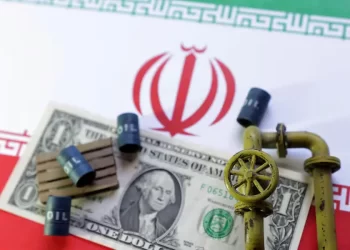Campaigners say UK government decision does not go far enough as only 30 of 350 arms licences are suspended.
The British government has suspended some arms export licences to Israel, saying the weapons could be used to commit violations of international humanitarian law.
But the move, which comes amid lingering international criticism of Israel’s killing of more than 40,000 Palestinians in the Gaza Strip, does not go far enough as it exempts crucial F-35 fighter jet parts, according to rights organisations and experts.
Let’s take a look at what we know:
Foreign Secretary David Lammy told the United Kingdom’s parliament on Monday that 30 of 350 arms exports licences to Israel are being suspended to cover items that could be used in the Gaza war, citing international humanitarian law concerns.
Those comprise components for military aircraft including fighter jets, helicopters and drones, but will exclude parts for lethal F-35 jets, except for those going directly to Israel.
Independent Member of Parliament Jeremy Corbyn asked the top diplomat whether the UK had played a role in flying surveillance drones over Gaza, and if Israel had been using a British military base in Cyprus to fly its jets. But Lammy only repeated the government’s position that the UK supplies less than 1 percent of the total arms that Israel receives.
Amnesty International said the decision announced by Lammy was “filled with loopholes and does not go far enough”. Continuing to supply Israel with F-35 components “is a catastrophic failure for arms control and justice,” it said.
She also echoed other critics in saying the ban should cover all arms exports to Israel.
Israeli Foreign Affairs Minister Israel Katz said the decision was disappointing and “sends a very problematic message” to the Palestinian group Hamas and Iran.
Israel backers in the UK criticised the government for adopting the decision, a day after the bodies of six Israeli captives were found in southern Gaza.
The British government has said it will no longer directly send components for the fighter aircraft to Israel. But its parts will still find their way to Israel – and will most likely be used in Gaza – through an international programme.
The programme includes dozens of companies based in Western nations allied with Israel, predominantly the United States. At least 15 percent of the value of each US-made F-35 combat aircraft is produced by the UK, according to research by the UK-based Campaign Against Arms Trade (CAAT).
How have the suspensions been received?
The argument presented by the British government for excluding parts supplied through the programme is that any suspension “is not possible without having a significant effect on the global F-35 fleet with serious implications for international peace and security”.
But Lammy’s announcement came on the same day that Danish news outlet Daglabet Information, together with NGO Danwatch, was able to definitively confirm – for the first time – the use of an F-35 stealth fighter to carry out a specific attack in Gaza.
The justification presented by Israel was that it was targeting Hamas military chief Mohammed Deif and others — an attack that it later claimed was successful.
Hamas has not confirmed Deif’s death. Israel’s attacks on used the same claim it had in the aftermath of all its other mass-casualty attacks that have disproportionately killed civilians, especially children.
This is the first time since the start of the war on Gaza that the UK government has admitted that there is a “clear risk” that UK-supplied weapons and components might be used in a serious violation of international humanitarian law, according to arms trade researcher Anna Stavrianakis.
This is significant because it means the government is legally obliged to halt arms exports to Israel that might be used in such violations, but the F-35 exemption constitutes “an enormous loophole” that undermines the government’s position, she told media.
“F-35 parts are probably the single biggest UK contribution to Israel’s genocidal war,” the professor of international relations at Sussex University said.
“The UK exports parts and components to the US, where companies led by Lockheed Martin and Northrop Grumman incorporate them into F-35 fighter jets, including those that go to Israel via US military aid. There might be some custom parts for the Israeli F-35I that the UK sells directly to Israel, but they are the minority.”
Stavrianakis pointed out that Palestinians in the occupied West Bank are also subject to violence by Israeli forces that is also committed and facilitated with foreign-supplied weapons.
“And more broadly, UK-supplied weapons facilitate the Israeli occupation of Palestinian land and its apartheid system of dispossession, violence and control. Given this, and given that the UK is a party to the Genocide Convention, the UK should not be supplying any weapons or providing any military aid to or cooperation with Israel – something that Palestinians have long been demanding,” she said.
In July, the International Court of Justice ruled that Israel’s continued presence in the occupied West Bank and East Jerusalem is unlawful and should come to an end “as rapidly as possible”.









